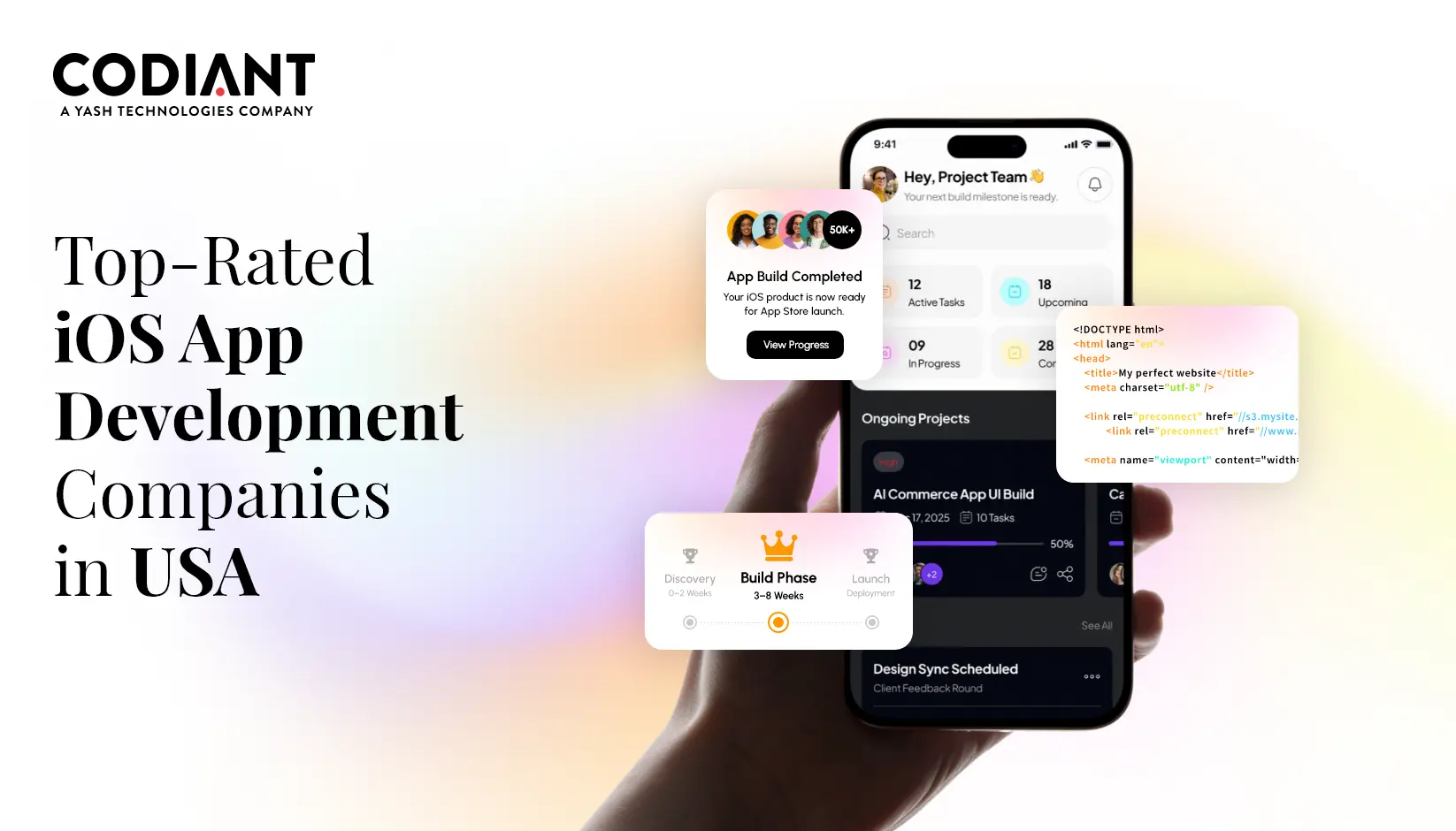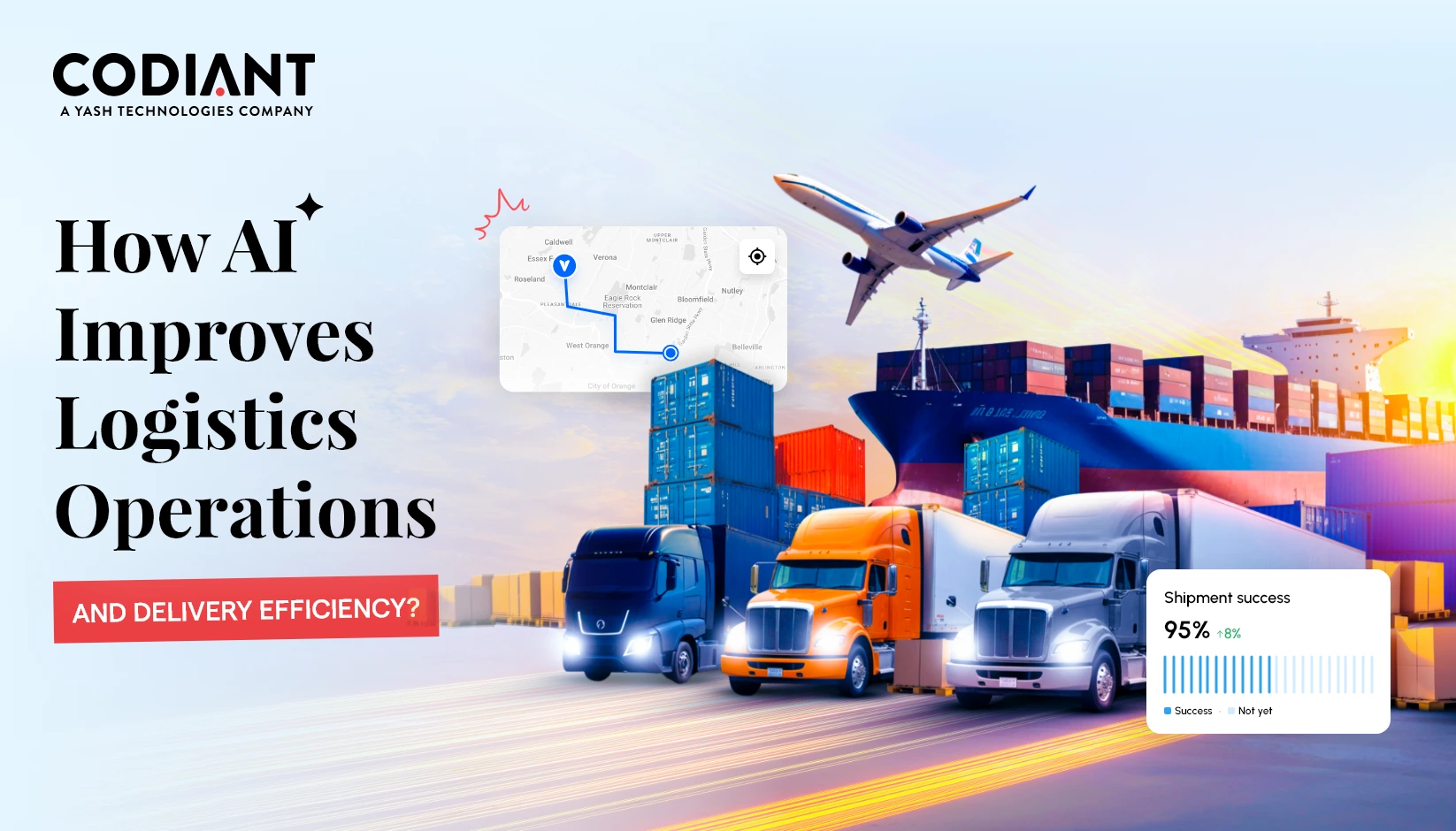Influence of Mobile IoT on App Development
Table of Contents
Subscribe To Our Newsletter

Dive into a world of IoT in mobile app development where you live and work to perfection. You blink, and your home tunes with your preferences. You step out, and your car sets itself as per your driving settings. You go to work; your office cubicles invite you with doors opened and temperature set as per your comfort. The Mobile IoT has all the powers and the influence of Mobile IoT on app development is huge. With the ability to transfer data over a network, IoT-based mobile apps integrate sensors and other internet-connected devices, such as wearables, medical devices, fitness watches, etc., to disrupt the way we live.
From improving productivity to increasing convenience, IoT-connected devices are taking the economy by storm. Statista reveals the revenue generated by IoT-related technology is projected to exceed $1.6 trillion by 2025. The global IoT market is expected to be worth about $318 billion in 2023. A big chunk of this, around $226 billion, comes from software, including mobile apps.
Enhanced user experiences, improved efficiency, and innovative functionalities — integrating IoT devices with mobile apps has become a unique signature for personalized automated experiences.
In this blog, we will delve deeper into the implications of IoT in the mobile app development sector, exploring its benefits, challenges, and future prospects. And what better way to illustrate the transformative power of IoT in this realm than starting with a real-life success story?
In a city teeming with app developers, enterprising entrepreneur Andrew discovered the game-changing potential of Mobile IoT at a tech conference. Fascinated by its ability to link apps with real-time data from diverse devices, Andrew set out to create an energy-tracking app.
His journey wasn’t without its share of hurdles. Confronted by challenges, Andrew’s determination fueled his efforts to make his vision a reality. But he didn’t go at it alone. The tight-knit developer community rallied behind him, offering insights, advice, and support that proved invaluable. After countless hours of hard work and collaboration, Andrew’s app emerged as a hit in the market.
It effectively tracked energy consumption, offering users a tool to manage their usage intelligently. As news of Andrew’s success story spread, it became a beacon of inspiration, showcasing how Mobile IoT has the potential to fuel innovation in the app development world. Through Andrew’s journey, we witness firsthand how the integration of Mobile IoT can shape user experiences and revolutionize interactions with technology.
His story encapsulates the very essence of what we’ll be exploring further in this blog — the transformative power of IoT in the realm of mobile app development. So, let’s delve deeper into the exciting future that Mobile IoT holds for the ever-evolving landscape of app development.
Join us as we uncover how IoT is changing the game, one strategy at a time.
Exploring Mobile IoT and Its Significance
Mobile IoT, or Mobile Internet of Things, integrates IoT technology into mobile devices, enabling communication and data exchange with other connected devices and sensors. It utilizes connected devices, such as smartphones and wearables, along with sensors to collect data from the environment.
This data is exchanged in real-time with cloud platforms, allowing for instant insights. Impact of IoT in mobile app development is significant, creating intelligent applications that interact with devices and services.
It enhances sectors like healthcare, transportation, and home automation, enabling remote patient monitoring, connected cars, and smart homes. By leveraging IoT capabilities, app developers are creating innovative solutions that enhance user experiences and drive advancements in various industries.

Key Features of IoT-Enabled Apps
IoT-enabled apps offer various key features to enable seamless communication and interaction between connected devices. Here are some essential features that IoT-enabled apps should possess:
Remote Control:
IoT-enabled apps allow users to remotely control and monitor connected devices. This feature enables users to control devices, such as thermostats, security cameras, or smart lights, from anywhere using their smartphones or other devices with internet connectivity.
Data Synchronization:
IoT apps should have robust data synchronization capabilities. This feature ensures that data collected from multiple connected devices is continuously synchronized and accessible in real time. It enables users to have a unified view of the data generated by various devices.
Automation:
IoT-enabled apps often incorporate automation features that allow devices to function independently based on predefined rules or triggers. For example, a smart home app can automatically adjust the temperature when it detects that the user has left the house.
Alerts and Notifications:
IoT apps should have the capability to send alerts and notifications to users based on specific events or conditions. For example, a home security app can alert users when it detects unusual activity or when a connected device requires attention.
Energy Management:
IoT apps can help optimize energy consumption by allowing users to monitor and control connected devices that consume energy, such as appliances, lights, or heating systems. This feature enables users to reduce energy waste and save costs.
Analytics and Insights:
IoT-enabled apps can provide valuable analytics and insights based on the data collected from connected devices. This feature helps users understand device performance, and usage patterns, and make informed decisions for optimization and improvement.
Integration and Interoperability:
IoT apps should have the ability to integrate and interoperate with different types of devices and platforms. This allows users to create a connected ecosystem with devices from multiple manufacturers and ensures compatibility and ease of use.
Security and Privacy:
IoT-enabled apps should prioritize security and privacy to protect user data and ensure the integrity of connected devices. Robust encryption, authentication, and authorization mechanisms should be in place to prevent unauthorized access or tampering of data.
Why IoT Integration Is the Future of Mobile App Development?
IoT in mobile app development is the future due to its transformative impact on technology and user experiences. Here’s why:
Seamless Connectivity:
IoT enables devices to communicate and collaborate seamlessly. Mobile apps can connect with a wide range of smart devices, creating integrated and synchronized user experiences.
Enhanced Personalization:
IoT-driven apps can gather real-time data from connected devices, allowing for personalized services and recommendations tailored to individual users.
Smart Automation:
IoT-powered apps automate tasks and processes, making everyday activities more efficient. For instance, smart home apps can control lights, thermostats, and security systems remotely.
Data-Driven Insights:
IoT in mobile app development enables massive data streams. Mobile apps can harness this data to provide valuable insights for businesses and users, helping in decision-making.
Expanded Possibilities:
IoT extends app capabilities beyond screens. Apps can interact with the physical world, enabling new functionalities and experiences, like remote monitoring or predictive maintenance.
Industry Disruption:
IoT disrupts industries like healthcare, manufacturing, and agriculture. Mobile apps in these sectors can leverage IoT for advanced diagnostics, remote monitoring, and precision agriculture.
Innovation and Competition:
Embracing IoT sets app developers apart by offering cutting-edge, innovative solutions that cater to modern user expectations.
Real-Time Interaction:
IoT allows apps to interact with the real world in real-time. For instance, a smart wearable app can track a user’s health metrics and send alerts when thresholds are reached.
Cost-Efficiency:
The usage of IoT in mobile app development can optimize resources, reducing costs in various industries. For instance, energy management apps can help conserve resources in smart buildings.
Sustainable Growth:
As IoT adoption grows, the demand for IoT-enabled apps will increase. Developers investing in this domain can expect sustained demand for their skills and services.
Impact of IoT in the Mobile App Development Sector
The rise of Mobile IoT (Internet of Things) is causing a big shift in how apps are developed. Developers are quickly adjusting their strategies to take advantage of IoT’s power, creating new and connected experiences for users. This combination of mobile apps and IoT isn’t just changing things now – it’s also shaping the future of app development.
Adapting Strategies to Integrate IoT In Mobile App Development
App makers are embracing IoT to make apps that can talk to smart devices, sensors, and networks. This means apps are no longer just on screens – they’re now bridges that let data flow between the digital and physical worlds in real-time. This change has led to the creation of cool new apps that match what users want: smart and linked-up solutions.
Challenges and Considerations
But using IoT in apps isn’t without challenges. Security is super important when dealing with sensitive data between devices and networks. Developers need to make sure data is protected with b security measures like encryption and authentication to keep info safe. Another challenge is handling a lot of data. IoT-powered apps interact with more devices, which means more data.
Developers need to make sure their apps can handle all this extra information without slowing down. And there’s also the issue of making sure apps work on all sorts of devices and systems. IoT is used in many different devices, so apps have to be made to work seamlessly across all these variations.
The Path Forward
Even with these challenges, bringing IoT into mobile app development has big advantages. Businesses can create better user experiences, get real-time data insights, and make things run smoother. From smart homes to advanced factories, apps with IoT are changing industries and how customers interact with companies. While there are challenges, the benefits of IoT in apps are just too good to ignore.
As the infusion of IoT in mobile app development keeps growing, developers need to stay on top of this change to create solutions that match the needs of our connected world.
For more, refer to Challenges to IoT. These features collectively enhance the user experience and enable the full potential of IoT devices and applications. However, it is important to note that the specific features required may vary depending on the intended use case and industry.
Future Trends and Innovations in Mobile IoT App Development
The future of IoT in mobile app development is expected to be driven by continuous advancements in technology. Here are a few predictions for what we might see:
- Digital Twins and the Enterprise Metaverse: This is a convergence of two very important tech trends that will define how technology is used across industry and enterprise during 2023. By using data from IoT sensors, it will be possible to build increasingly realistic digital twins of many different systems – from manufacturing facilities to shopping malls.
- Blockchain to Secure IoT: Blockchain is a highly secure & efficient technology when it comes to building blockchain apps that contain data on top priority. It creates a decentralized system that removes the indulgence of central servers and provides peer-to-peer interaction.
- Smart Home Devices: Smart home devices are becoming increasingly popular and are predicted to continue growing in popularity in 2023. PCMag has tested hundreds of smart home products in more than 20 categories to help determine which ones are best for every room in (and out of) the house.
- Cybersecurity: Cybersecurity will continue to be a priority in 2023 as more devices become connected to the internet. IBM defines cybersecurity as the practice of protecting critical systems and sensitive information from digital attacks.
- Edge Computing: Edge computing is becoming more popular as it allows for faster processing times and lower latency. Edge computing refers to processing that happens where data is produced. Instead of cloud processing doing the work in a distant, centralized data reserve, edge computing handles and stores data locally in an edge device.
- High Relevance of AI and Big Data: AI and big data are becoming increasingly important in IoT mobile application development. Big data analytics leverages AI for better data analysis. AI requires a massive scale of data to learn and improve decision-making processes, and big data analytics leverages AI for better data analysis. Expertise from industry leaders like Codiant is crucial in navigating this landscape.
- Wearable Devices: Wearable devices are increasingly becoming an integral part of the IoT ecosystem. These devices, such as smartwatches and fitness trackers, generate a vast amount of data. Future Mobile IoT apps will leverage wearable devices to collect and analyze data, providing personalized recommendations, health monitoring, and seamless integration with other IoT devices.
Wrapping up!
Mobile IoT has a significant impact on the app development sector. It is rapidly growing and offers new opportunities for innovation and better user experiences. Many industries, like healthcare, manufacturing, transportation, and retail, have already seen remarkable changes with the help of Mobile IoT apps. To stay competitive in the app development field, developers need to keep up with the evolving trends of IoT in mobile app development and embrace this technology.
By embracing innovation and emerging technologies, businesses can stay ahead in the ever-evolving digital era. At Codiant, we’re passionate about turning bold ideas into intelligent, scalable mobile solutions that deliver real impact. If you’re seeking trusted mobile app development services in Los Angeles, our team is ready to bring your vision to life with precision and creativity. Connect with us today to discuss your next project and discover how we can help you lead in the world of IoT and mobile app innovation.
Frequently Asked Questions
Mobile IoT equips your phone with advanced features that allow it to interact with various devices. It’s a blend of mobile technology and Internet of Things (IoT). It turns your phone into something that not only runs apps and makes calls, but also communicates with your smart home gadgets, health monitors, even your car!
For app engineers, this creates an entirely different pool of opportunities. They can now create apps that respond to real-world objects and not just digital tasks.
Mobile IoT is revolutionizing the way we create apps. Here are a couple of the changes: 1. Multiple data sources: Apps can now access information from various IoT gadgets.
2. Live exchanges: Apps can react to real-world events as they unfold.
3. Improved functionality: Apps can now operate physical devices and not just show data.
4. Original user interactions: Consider augmented reality paired with IoT information. 5. Greater security emphasis: With numerous connected devices, data protection becomes crucial.
To simplify, app development has leveled up from 2D to 3D – it now has a new aspect to consider.
Creating for Mobile IoT is thrilling, yet comes with its difficulties:
1. Device harmony: Assuring your app is compatible with different IoT gadgets and their respective protocols.
2. Managing data: Processing live data from multiple streams.
3. Safety and privacy: Guarding sensitive data on multiple connected devices.
4. Battery usage: IoT functions can drain power, so streamlining is important.
5. User interaction: Crafting user-friendly interface for complex IoT interactions.
6. Testing: More complicated when physical devices and real-world scenarios are involved.
To ace Mobile IoT development, varying skills are needed. Some critical skills are:
1. Understanding IoT protocols (like MQTT, CoAP)
2. Familiarity with cloud platforms (AWS IoT, Google Cloud IoT, etc.)
3. Maintaining robust security against threats.
4. Analyzing data and Machine learning
5. Designing user focused IoT interfaces
6. Working comfort with hardware (sensors, actuators)
7. Mastery in required coding languages (Java, Swift, Python) Essentially, developers level up from being “mobile experts” to “IoT wizards”.
Certainly! Mobile IoT is already reshaping various sectors:
1. Smart Home apps: Operate your lights, temperature controls, security system through your phone.
2. Fitness trackers: Move data from wearable devices to mobile.
3. Connected car apps: Track your car’s condition, location even switch it on remotely.
4. Industrial IoT apps: Supervise and operate factory machinery from a mobile device.
5. Smart city apps: Real-time alerts on parking spaces, traffic, air quality. In sum, these apps are like having universal control for real-world activities – amazing, isn’t it?
Featured Blogs
Read our thoughts and insights on the latest tech and business trends
Top iPhone App Development Companies in USA in 2026
- February 18, 2026
- Mobile App Development
In a Nutshell The USA remains one of the strongest hubs for premium iPhone app development in 2026, especially for fintech, healthcare, retail, and SaaS brands. Choosing the right iOS partner goes beyond portfolios; the... Read more
How to Choose the Right AI Development Partner in the USA (Enterprise Guide 2026)
- February 12, 2026
- Artificial Intelligence
In a Nutshell Enterprise AI success starts with clear business goals, not vague plans like “we need AI.” The best AI development partners deliver real production systems, not just impressive demos or prototypes. Industry alignment... Read more
How AI Is Transforming Transport & Logistics Operations in Real Time
- February 10, 2026
- Artificial Intelligence Logistics & Transportation
In a Nutshell: AI in transport & logistics is enabling faster, smarter decision-making across fleets, warehouses, and supply chains. Real-time logistics optimization improves route planning, dispatching, and delivery efficiency as conditions change. AI-driven forecasting and... Read more




